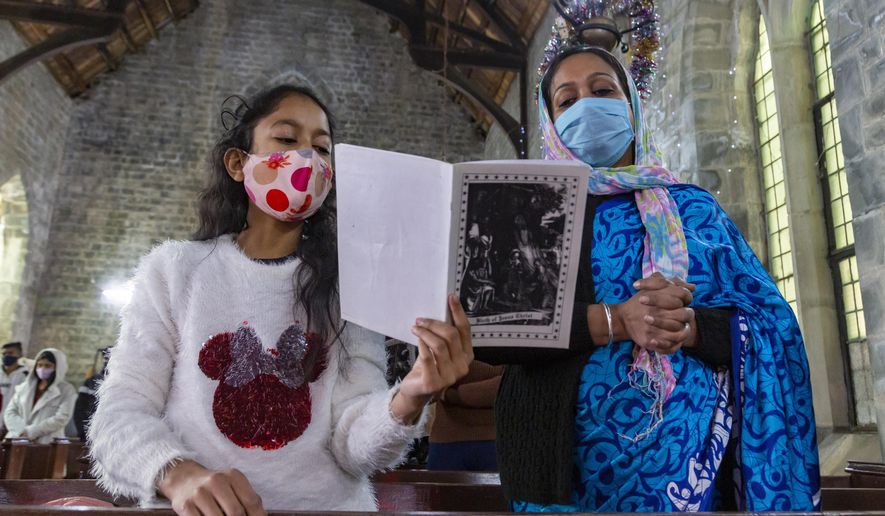The Biden administration needs to call out continuing persecution of minority Christians in India, according to activists at a seminar Wednesday accompanying the 2021 International Religious Freedom Summit in the District.
The meeting, sponsored by Maryland-based International Christian Concern, focused on the growing number of anti-conversion laws passed in nine of the South Asian nation’s states. The so-called “Freedom of Religion” laws restrict forced conversions, or those obtained fraudulently or through inducements. Critics say such practices do not exist, but are claimed by Hindu extremists alarmed when people become Christians.
Also at issue is the question of “mixed” marriages between individuals of different religions. Measures passed in the states of Himachal Pradesh and Uttarakhand state declare a marriage void if a conversion is done for the purpose of such a union.
The U.S. Commission on International Religious Freedom has condemned the anti-conversion laws in its annual surveys of global religious liberty, and for the past two years has called on the State Department to designate India as a “country of particular concern,” or CPC, although this has yet to happen.
A report issued by the ICC group documented 48 separate incidents of anti-Christian persecution in the Indian state of Madhya Pradesh, which enacted what has been called the “most stringent” anti-conversion laws in the nation. Under the legislation, potential converts must notify state authorities 60 days in advance of changing their faith, or face penalties of three to five years in jail and a fine of approximately $650.
According to official census figures, the 24 million Christians in India comprise the nation’s third-largest religious bloc. The nation is overwhelmingly Hindu, with more than 827 million adherents, followed by some 138 million Muslims, according to the nation’s Ministry of Home Affairs.
However, since the 2014 election of Narendra Modi, leader of the ultra-nationalist BJP political party, as prime minister, pressure on minority religions have increased, observers say. Vijayesh Lall, general secretary of the Evangelical Fellowship of India, said attacks have included “targeting mostly minority media, vandalism in churches, stopping local services, beating up our pastors, arresting them, taking them to the police station, [and] constantly putting them in jail.”
Mr. Lall also decried the government’s blocking of overseas aid to minority religious schools and orphanages, many of whom rely on donors in the West to keep their doors open. “This is the biggest denial of freedom anywhere in the world — including China — because there are millions upon millions of people, parents who want to address this,” he said.
Rep. Jamie Raskin, Maryland Democrat, decried the treatment of Muslims and Christians in the world’s second most-populous nation, who he said in videotaped remarks to the gathering are subjected to “laws against blasphemy, and heresy, and apostasy, anti-conversion laws, and laws that try to interfere with people’s individual conscience and worship.”
“We are urging Prime Minister Modi to respect religious freedom and tolerance for rights of individual worship in India and we’re asking for India to set a standard for the world in respecting the separation of church and state and not imposing the views of one religion on everyone else,” Mr. Raskin added.
David Curry, who heads Open Doors USA, a Christian advocacy group, told The Washington Times that India’s Christians just want to live in peace and practice their faith.
“They’re being good citizens,” Mr. Curry said in a telephone interview. “They’re not doing anything uncivil as you and I would know it, but they want to practice their faith peacefully, they would like to go to church, they want to be able to live in their hometown without being attacked by vigilante mobs.”
And Jeff King, president of International Christian Concern, says both the Biden administration and private citizens have a role to play in ending the attacks on India’s Christians.
“We think India needs to come back to religious freedom, they need to reverse their anti-conversion laws,” he said. “And what we’d really like to see is for Modi to come out and publicly condemn attacks, and to say we’re going to arrest perpetrators.”
• Mark A. Kellner can be reached at mkellner@washingtontimes.com.




Please read our comment policy before commenting.